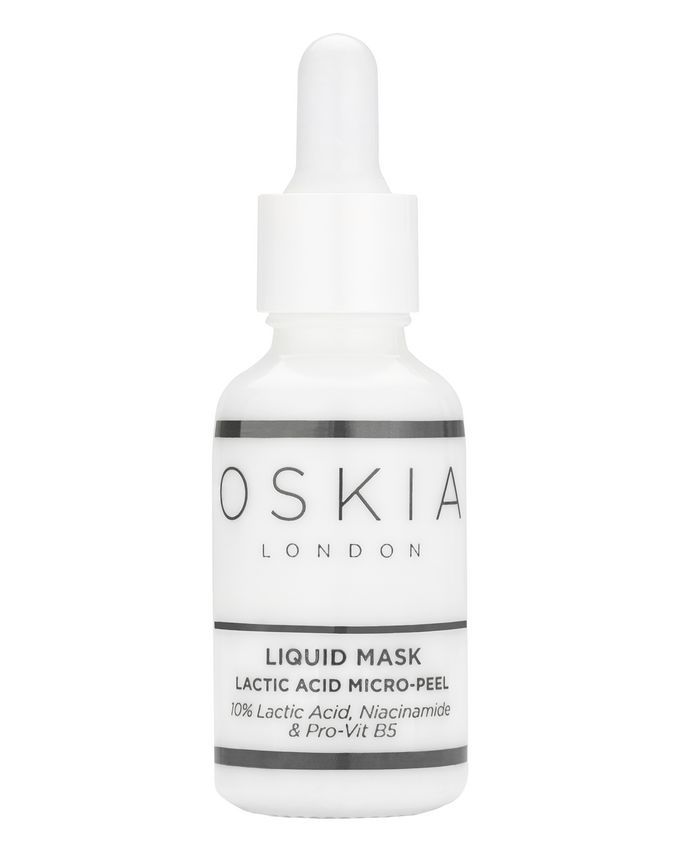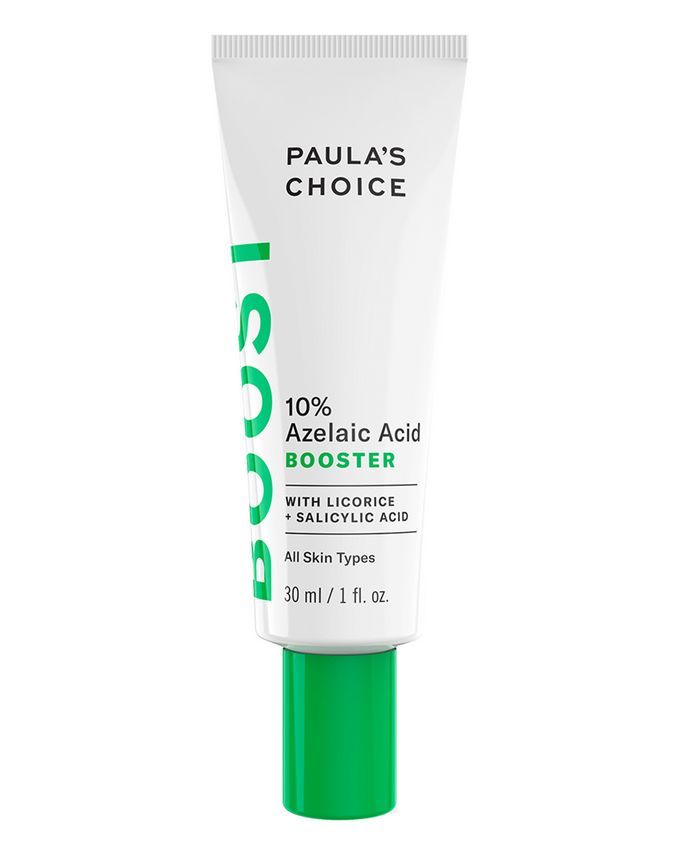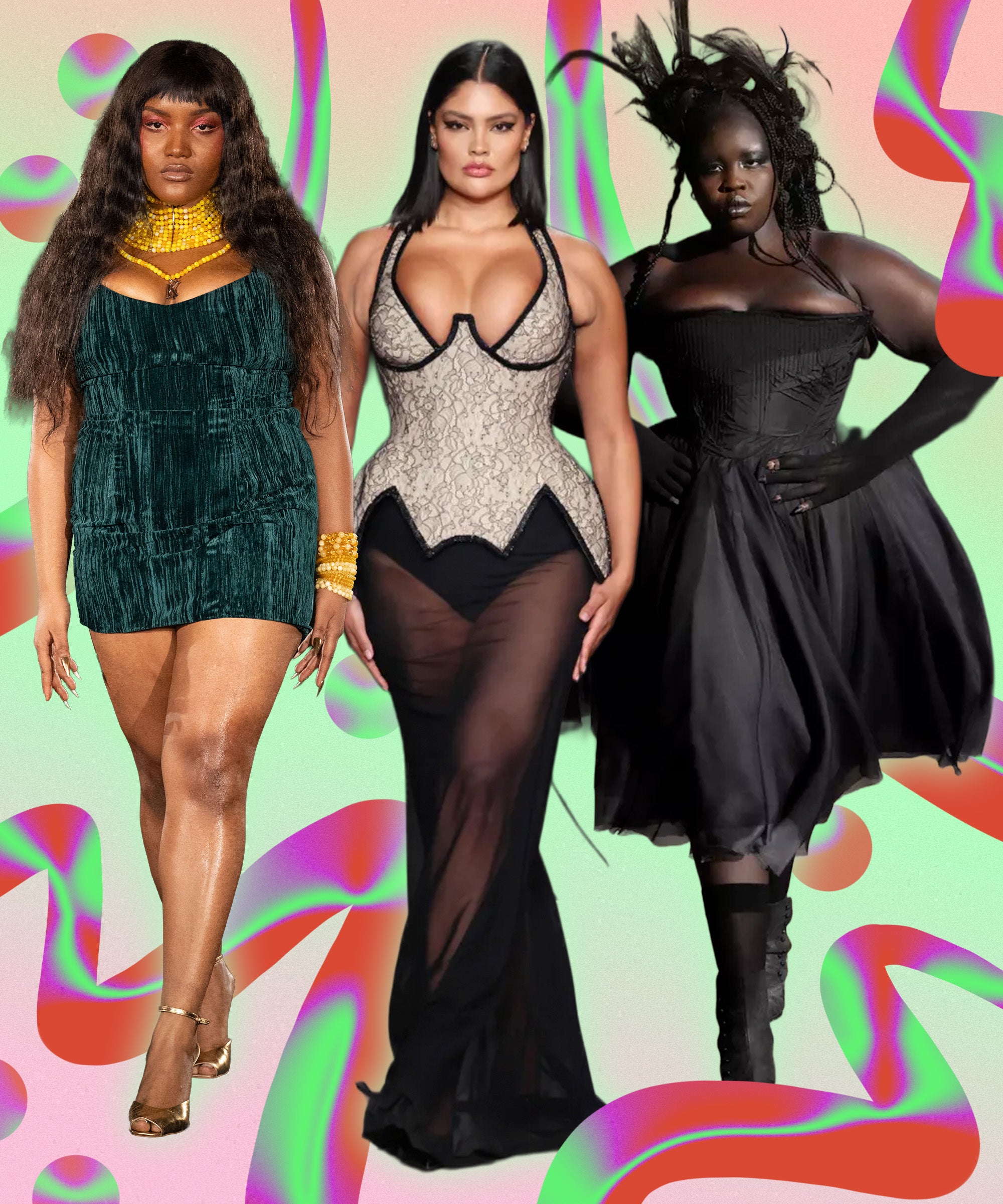
When Rebekah Brown first started experiencing peri-menopausal symptoms at the age of 43, she had no idea what was happening. “I was at the point where I should have been at the pinnacle of my career, yet I was completely losing my confidence, had crippling anxiety and I couldn’t even find the words to contribute in a meeting,” explains Brown. “I was bloated, I had an outbreak of acne and was just finding it almost impossible to try and do my job.”
Worried that something was seriously wrong, Brown headed to her doctor for advice. “And like many women in the UK, I was turned away with nothing because I was considered to be too young,” Brown says. “Because many women my age are managing a career, juggling kids and caring for ageing parents, it’s easy to confuse symptoms which are hormone-orientated with external stress factors and just conclude that it’s burnout. He basically said ‘Come back if you want antidepressants.'”
Luckily, Brown is a researcher by trade—and at heart—and she wasn’t willing to be palmed off so easily. After a more thorough investigation into her specific symptoms, the way that she was feeling and through conversations with older peers, Brown realised that she was experiencing peri-menopause—a term that she hadn’t even come across before. “It’s outrageous, really. In the UK, I think only 2% of the budget for medical research goes to female health. The whole thing is a feminist issue because we don’t know enough about menopause and we don’t really understand the full catalogue of symptoms that come with it.”

This frustration at the lack of aggregated information and medical help led Brown to create MPowder—a plant-based supplement powder range designed to target the three distinct stages of menopause. And while the powders themselves work to balance hormones, tackle symptoms like fatigue and libido and improve skin elasticity and density, Brown really supports a 360 approach to menopausal care. “We test all of our products and recipes with our community of women that we recruit via Instagram,” explains Brown. “This allows us to update our recipes based on feedback, but we also introduce them to holistic practices that we know have efficacy behind them. Whether that’s cognitive behavioural therapy for hot flashes, journalling for stress and anxiety or life coaching on how you continue in your career without depleting your energy levels.”
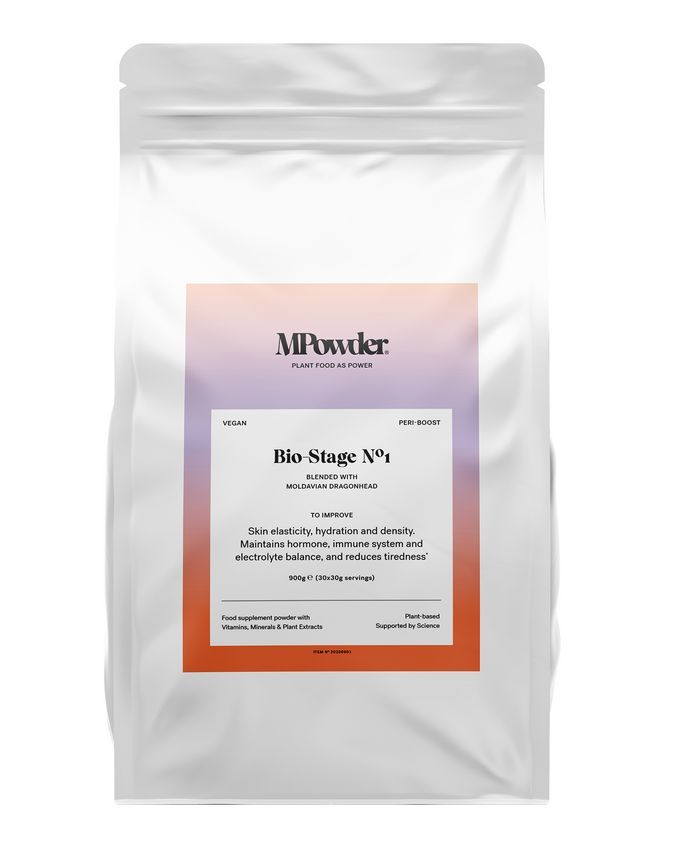
Brown thinks it’s high-time that we started talking about menopause earlier too. “I think there’s a real drive within the menopause community to ensure that we’re talking to women in their early and mid-30s and that they get it, and that they understand that their hormones are actually a superpower. They’re brilliant and if you can harness them well then your menopause should actually be a positive experience,” says Brown. “At the moment, younger women don’t really want to hear about it, they’re frightened of it because it sounds horrid. But it doesn’t to be if we can reframe this mid-life stage. We know statistically that post-menopause, if you’ve been looked after properly, then you have this creative surge and you’re more likely to start a business, find your sense of purpose and your value to a commercial workplace can grow exponentially.”
While Brown was pretty statistically accurate at entering peri-menopause at the age of 43, she does point out that a lot of women do enter it earlier. “And, really, from about the age of 35, our hormones start changing,” Brown explains. “You’ll notices things shifting, whether that’s your hair thickness, bloating or your skin texture, all of these things are signs that your hormones are starting to do different things.”
And when it comes to the skin, in particular, there’s no more effective place to start than with your products. “When it comes to changes to the skin the best place to start is to look at the products you currently have,” advises Ifeoma Ejikeme, MD, MBChB, MSc, skin expert and medical director and founder of Adonia Medical Clinic. “Ask yourself if these products still suit the needs of your skin. I find people can often use the same products for decades, but as your skin changes, then so should your products.”
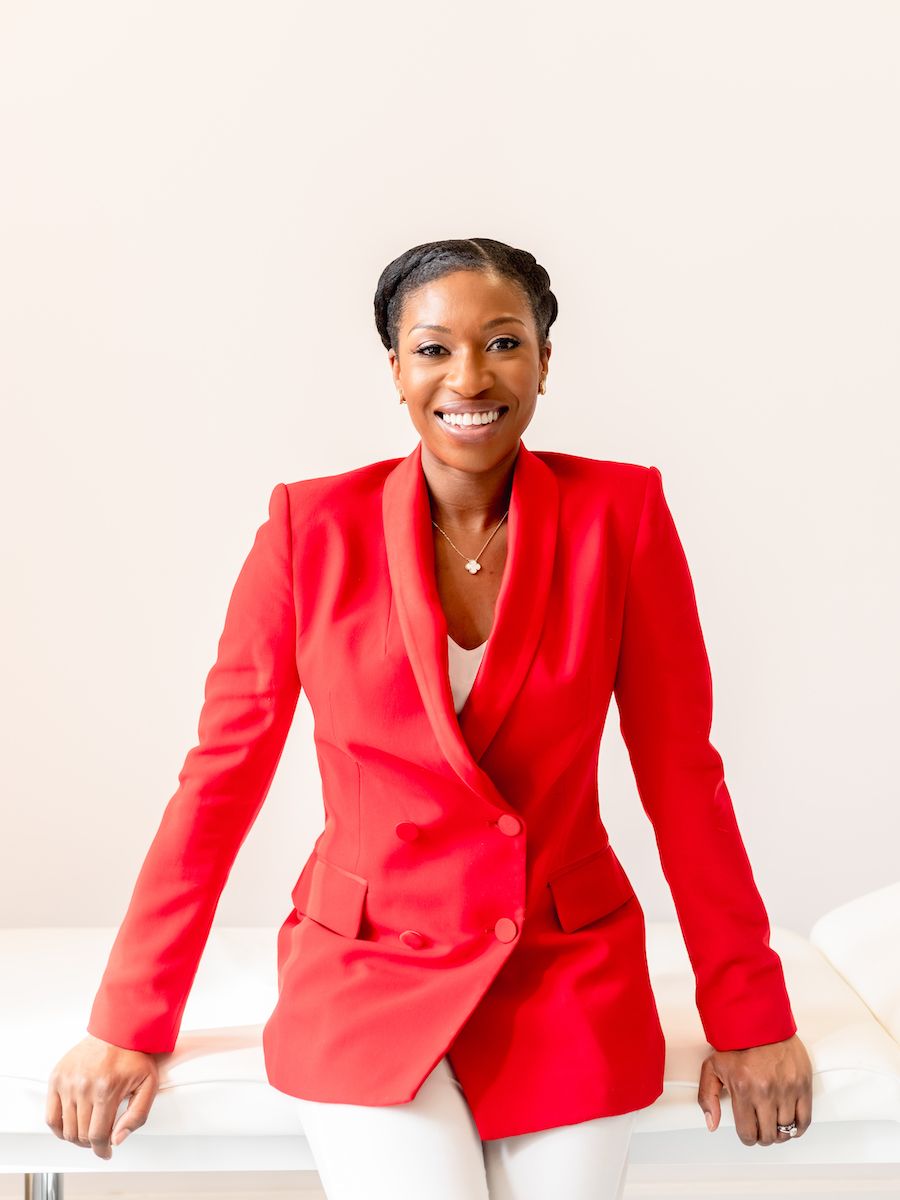
“During menopause, there are changes in a number of hormones, and, for the skin, the most important are oestrogen and IGF-1,” explains Ejikeme. “These hormonal changes lead to a change in the density of fat leading to more loose skin, changes to the composition of the dermis leads to more fine lines and slowing down of the skin turn over which means the skin heals more slowly.”
While these skin changes are true of all skin types, there is a discussion to be had around how these changes differ between women of different races and ethnicities. Much like pregnancy and wellness, the current conversations around menopause have come under some criticism for a lack of diversity in the stories told. “We’re very conscious of this in terms of the experts and communities that we work with,” agrees Brown. “You’ll find statistically that there are small differences both in the experiences and the timeframes in which women from different backgrounds experience menopause.
“In my patients of African and Asian descent the changes in the skin tend to be very bothersome as there is often a sudden shift in their skin,” says Ejikeme. “My method for treating my patients of African or Asian descent is, therefore, to start with a careful assessment focusing on skincare.”

So, what skin changes should we all be keeping an eye out for? “Towards our late 30s and early 40s, declining oestrogen leads to an imbalance and dominance of testosterone, which can lead to increased oil production, bacterial overgrowth and spots. Many women suffer with adult acne in this age group as a result of these hormone changes and I often see women at my clinic in this problematic perimenopausal period,” explains Anita Sturnham, MD.
“As women then move into the menopausal years, testosterone levels also decline alongside reduced ceramide production—the lipids that keep our skin barrier function healthy and hydration levels optimised. This results in skin prone to dryness and sensitivity. We also know that declining oestrogen leads to an increased rate of collagen breakdown and slower speeds for new collagen production. These stretchy, elastic collagen fibres act as scaffolding in our skin, resulting in increased skin laxity, fine lines and wrinkles.”
But there are products that can help. Ahead, keep scrolling for the best menopausal skincare routine, according to skincare experts.
When it comes to cleansers, opt for gentle formulations that won’t strip the skin. “You want to avoid anything too stripping like foaming cleansers, double cleansing and facial brushes,” advises Sturnham. Look out for gentle ingredients like glycerin and rosewater and hydrating formulations. Ejikeme loves the one from CeraVe.
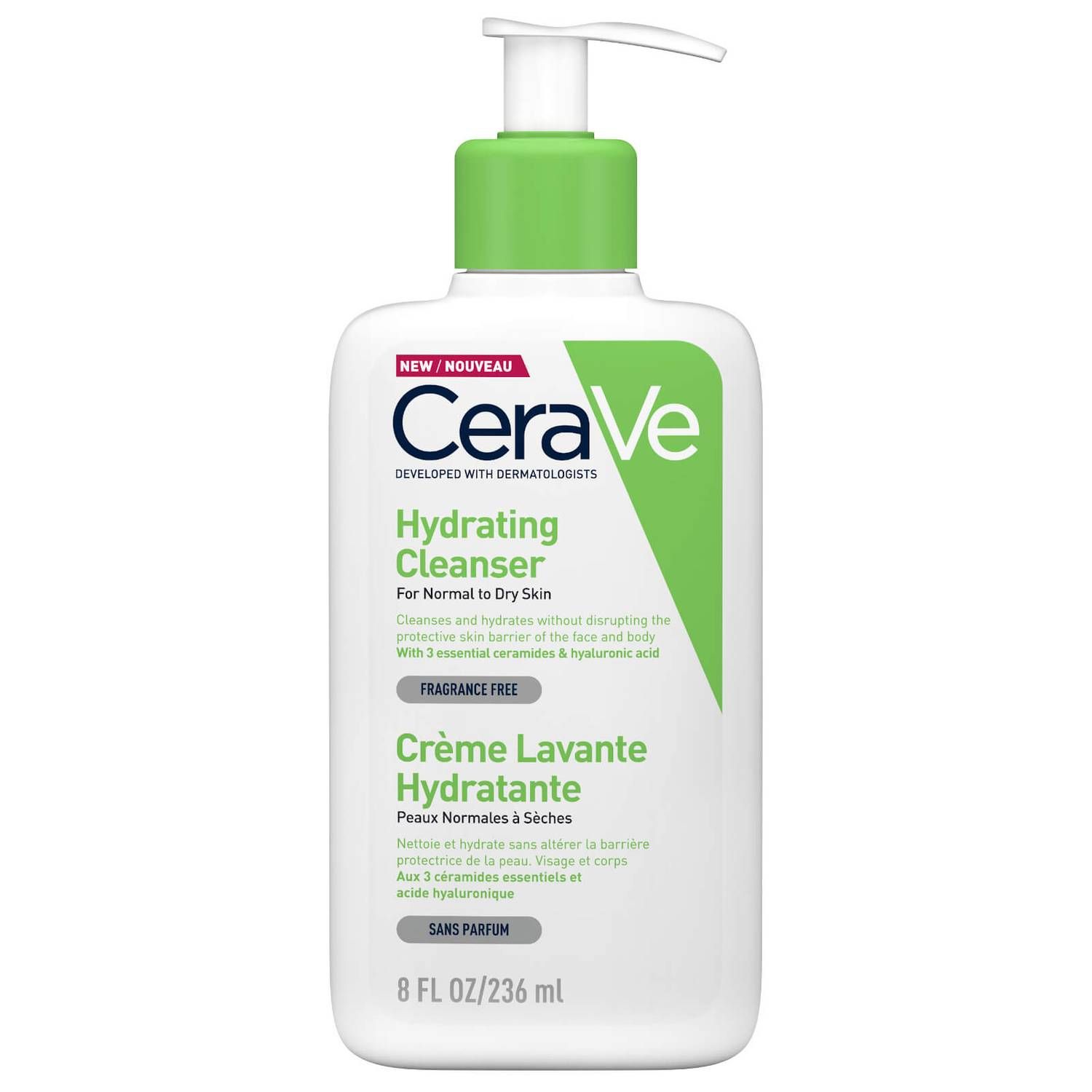
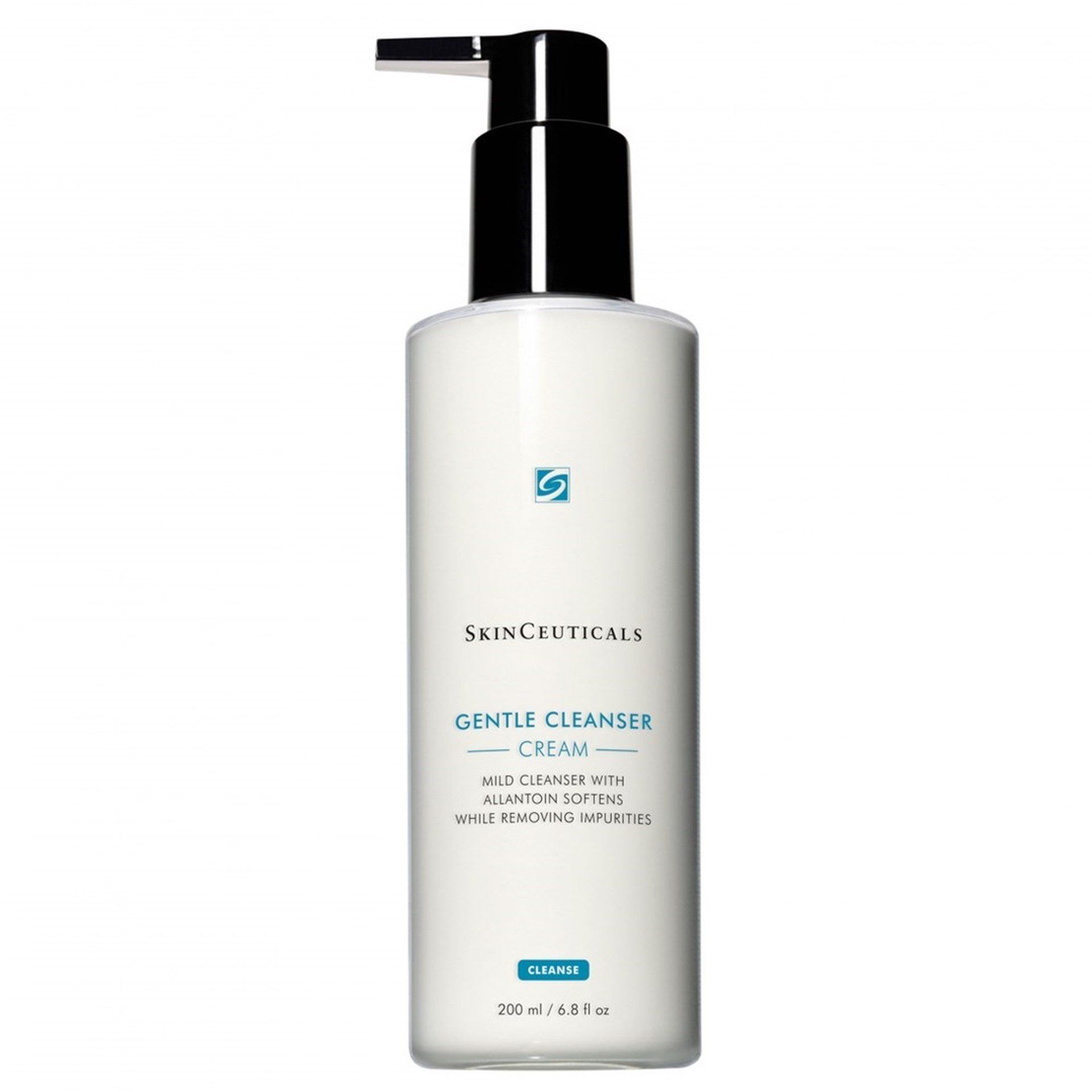
To combat dryness, opt for a water-based or hyaluronic acid-rich toner—or just a simple hyaluronic serum. “This helps to rebalance the skin’s pH and hydrate the skin,” explains Sturnham.
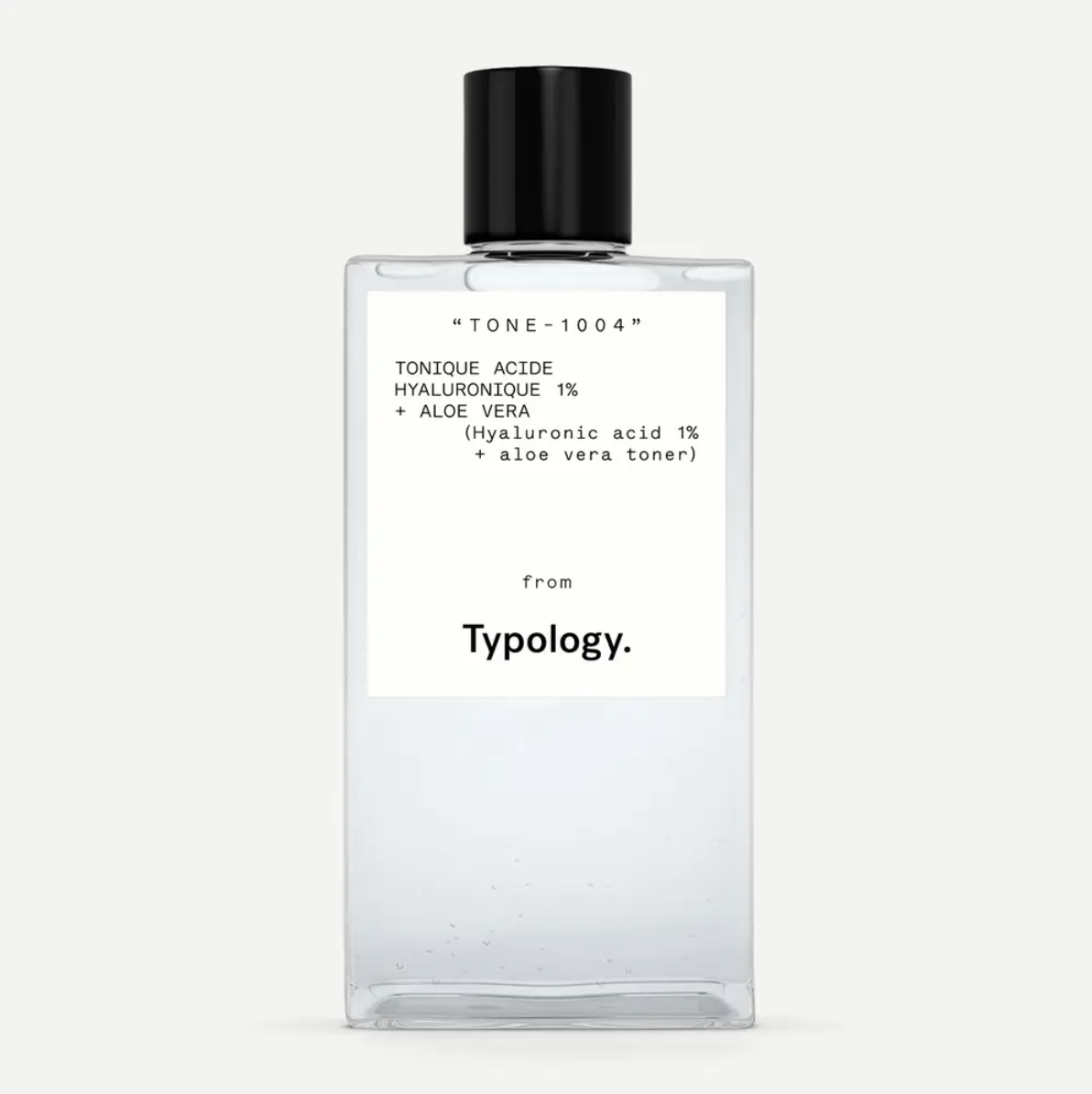
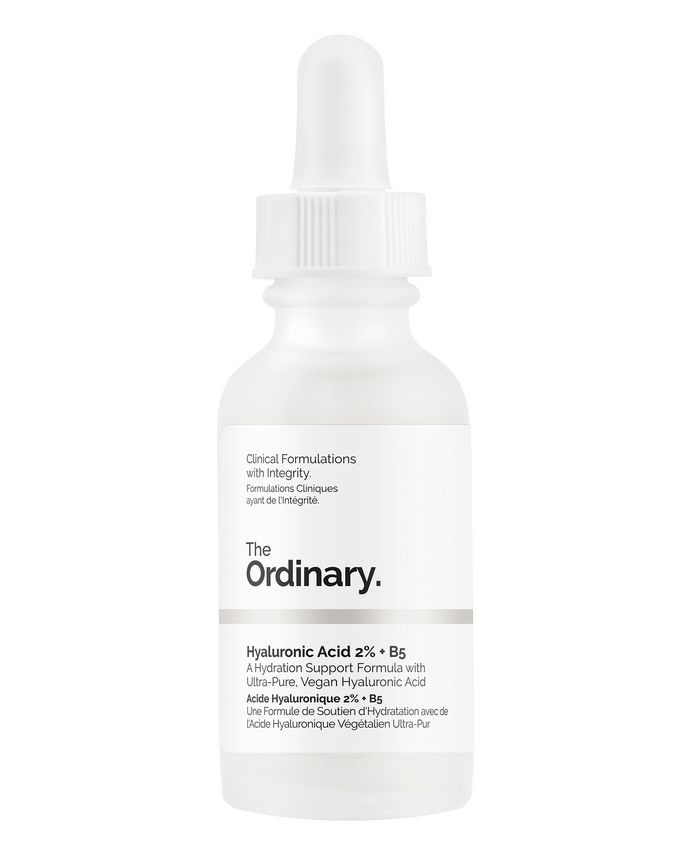
“The serum choice is really key,” advises Sturnham. “Look for antioxidants in your morning serum such as vitamins C, B, and E or Coenzyme Q10. At night, a gentle serum rich in a retinoid will aid new collagen production and boost repair without exacerbating dryness and sensitivity.”
“Reservatrol is another powerful antioxidant and a good choice for mature skin,” says Ejikeme.
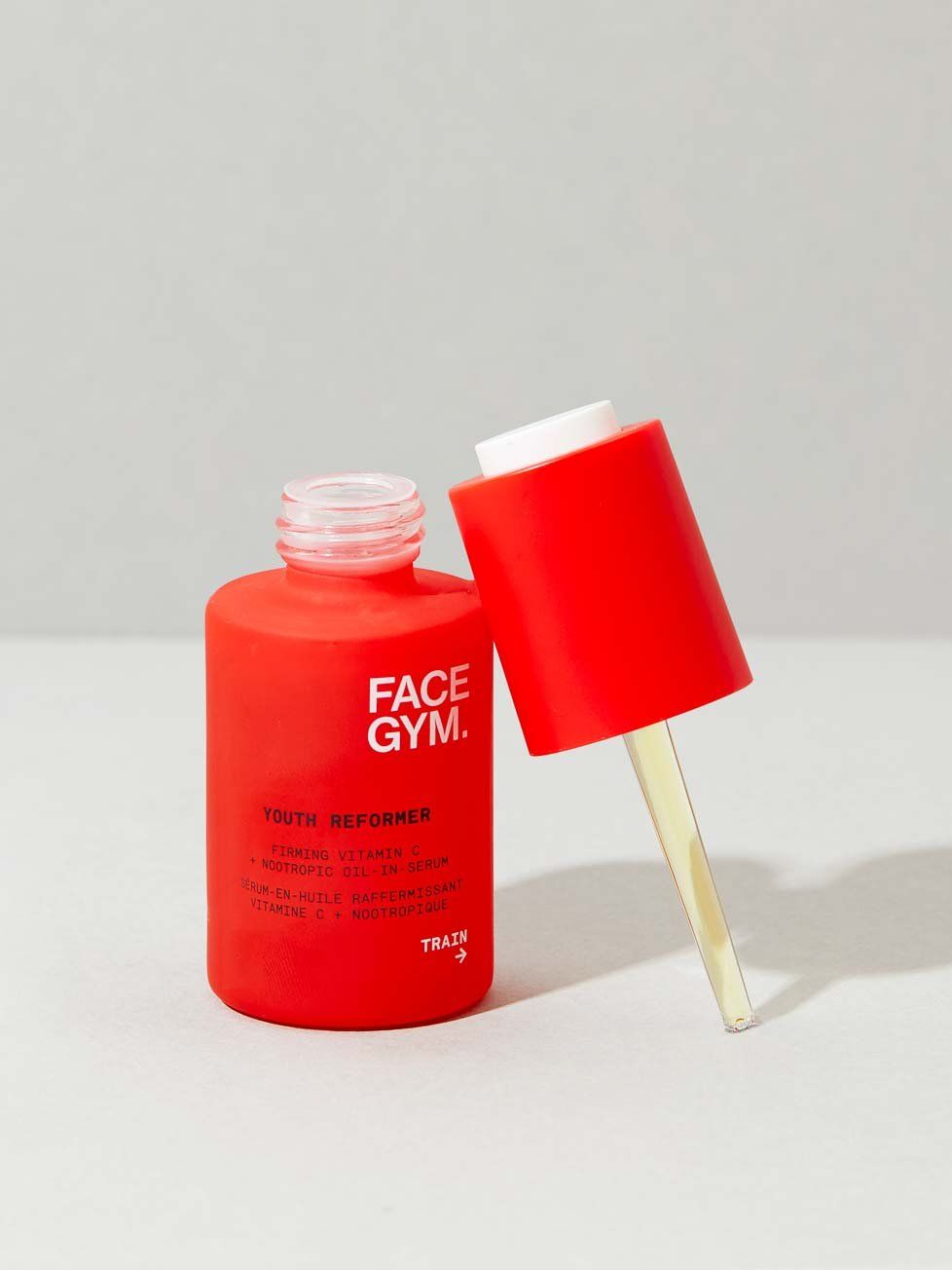
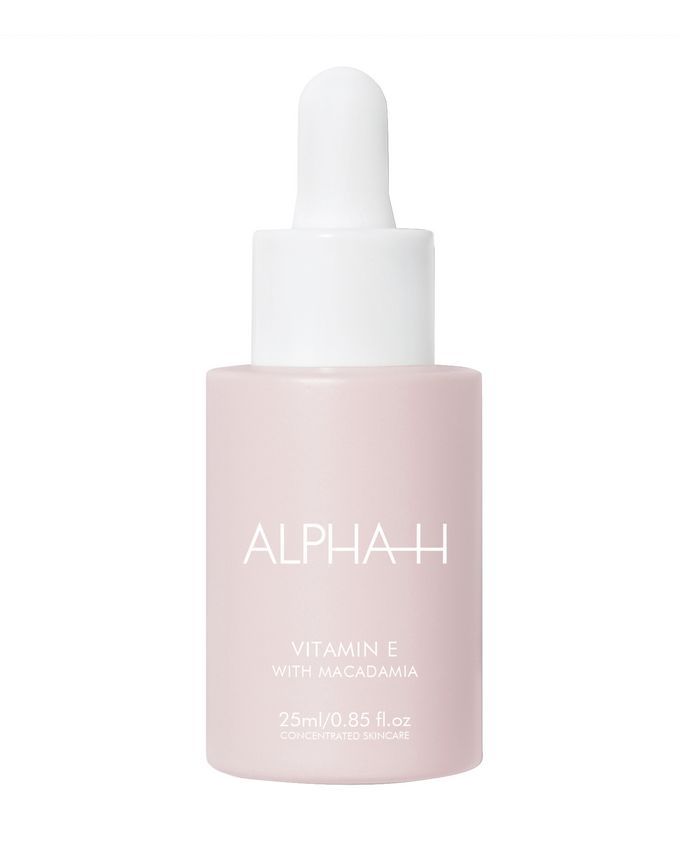
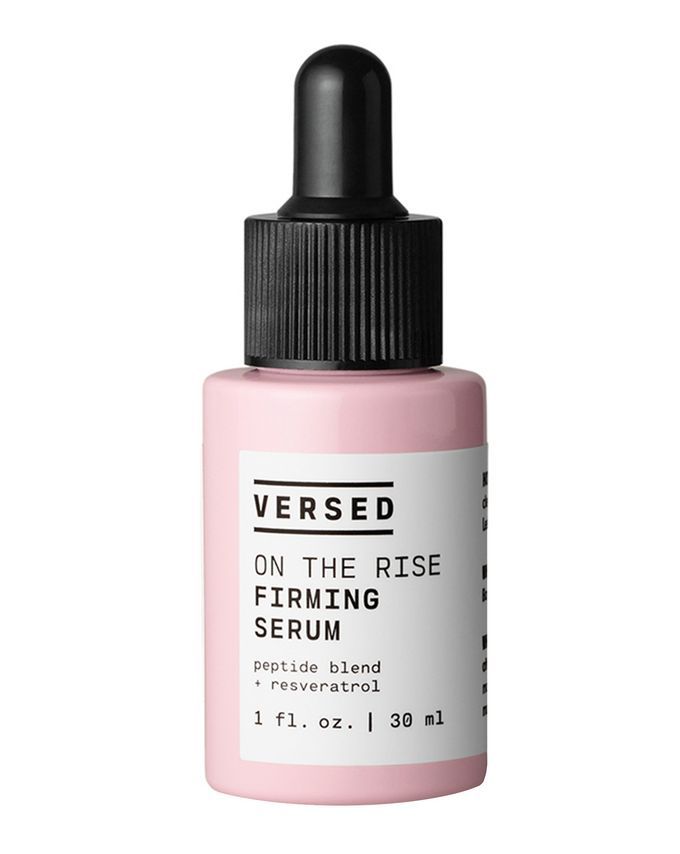
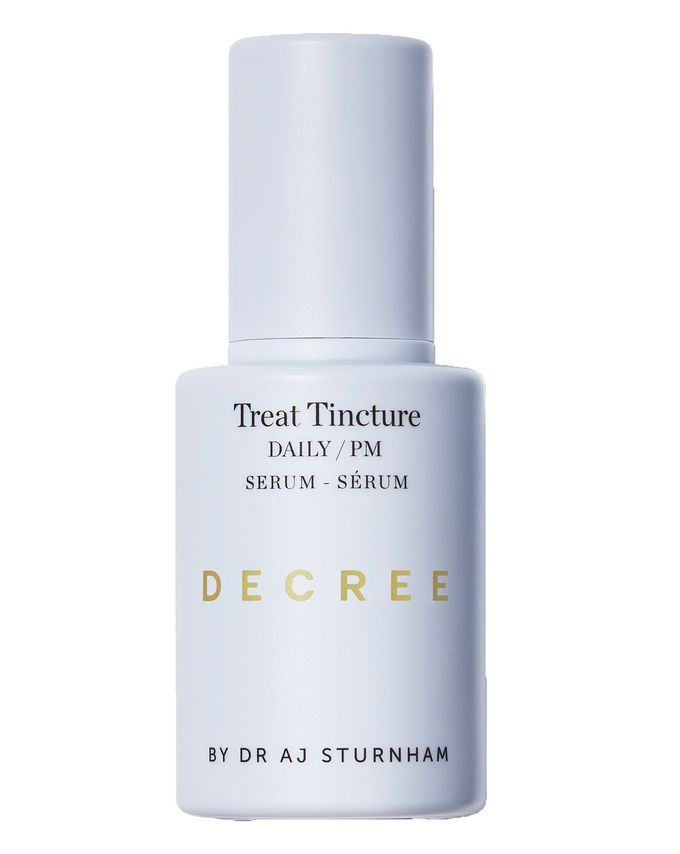
“You really don’t need to spend the earth to get a good, hydrating moisturiser,” says Ejikeme. “Good options include the Olay Regenerist Moisturiser (£31) and the CeraVe Facial Moisturising Lotion (£13).
As well as price, it’s also important to consider ingredients when caring for menopausal skin. “Adding in plant-based peptides, barrier-supporting ceramides, niacinamide and hydrating hyaluronic acid can be a gamechanger,” advises Sturnham.
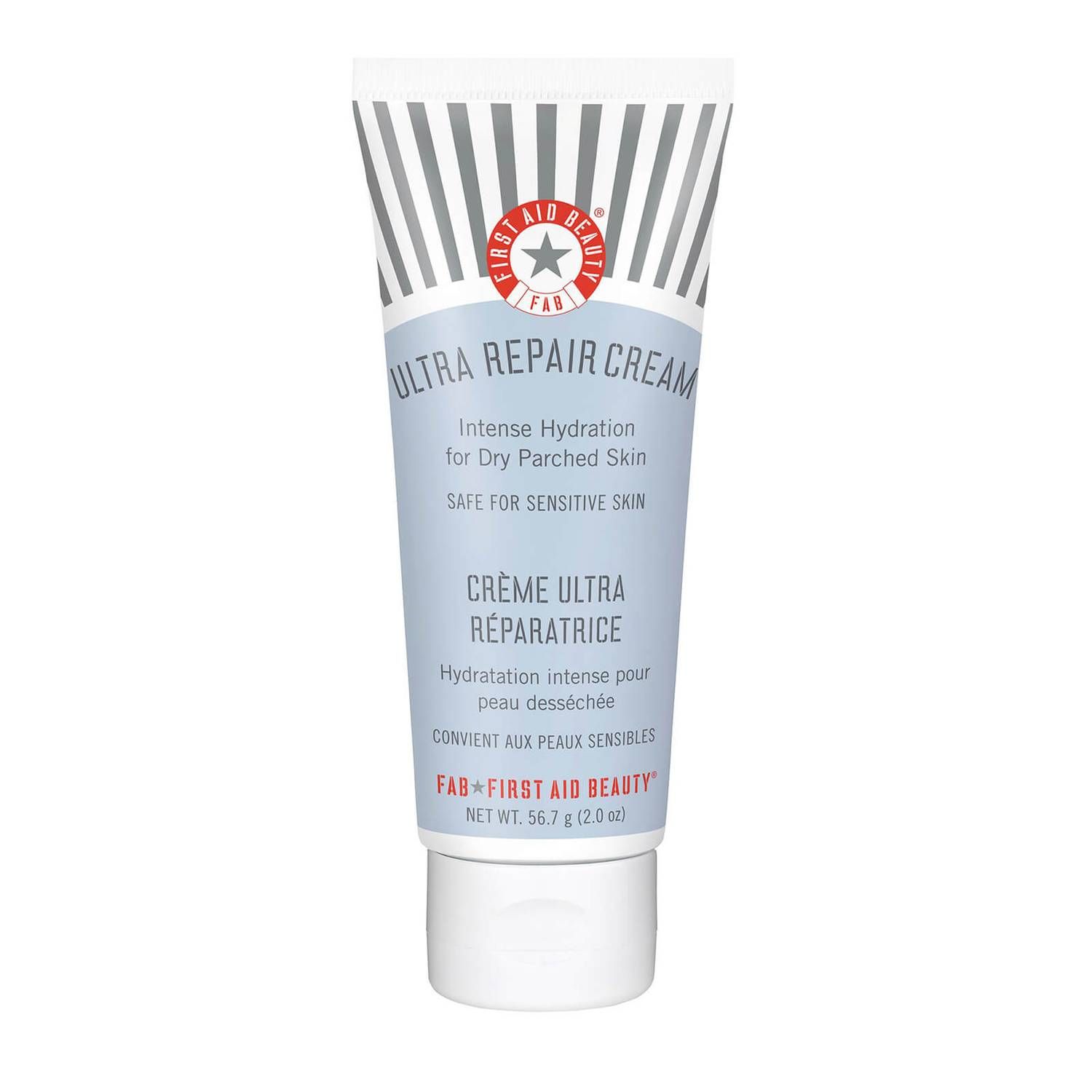
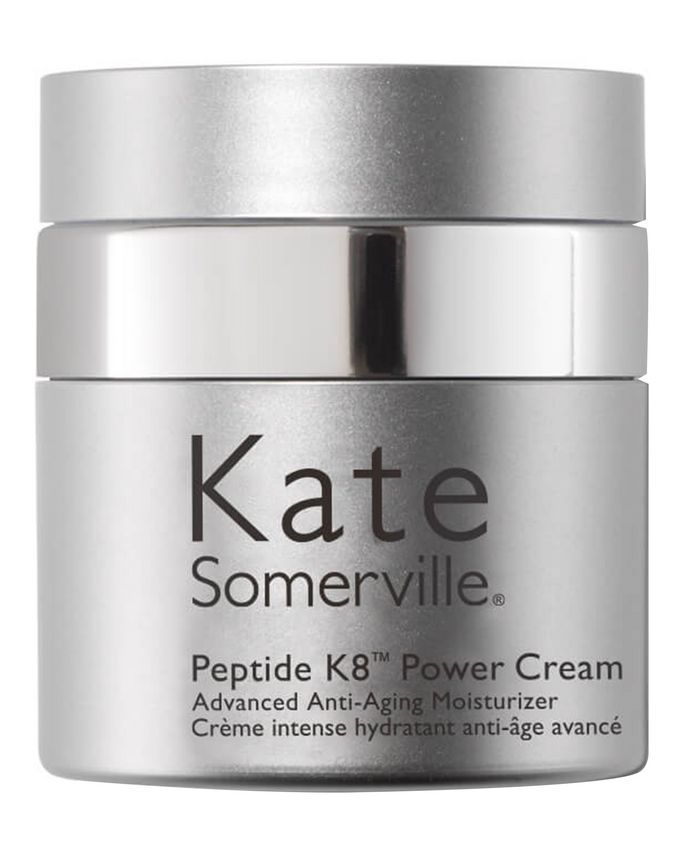
As with all skincare routines, SPF is a non-negotiable step according to skin experts—and it remains just as important to protect and care for your skin during menopause. Ejikeme recommends using SPF 50 for the best protection.
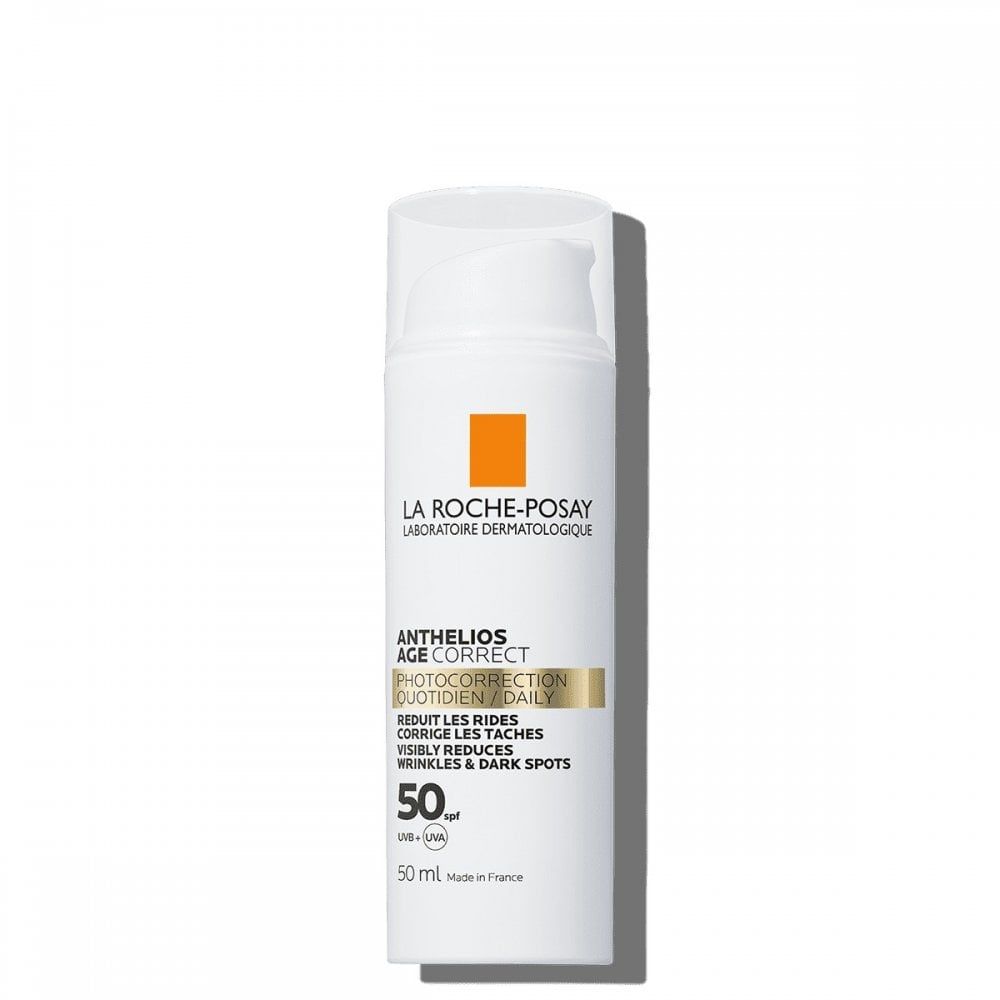
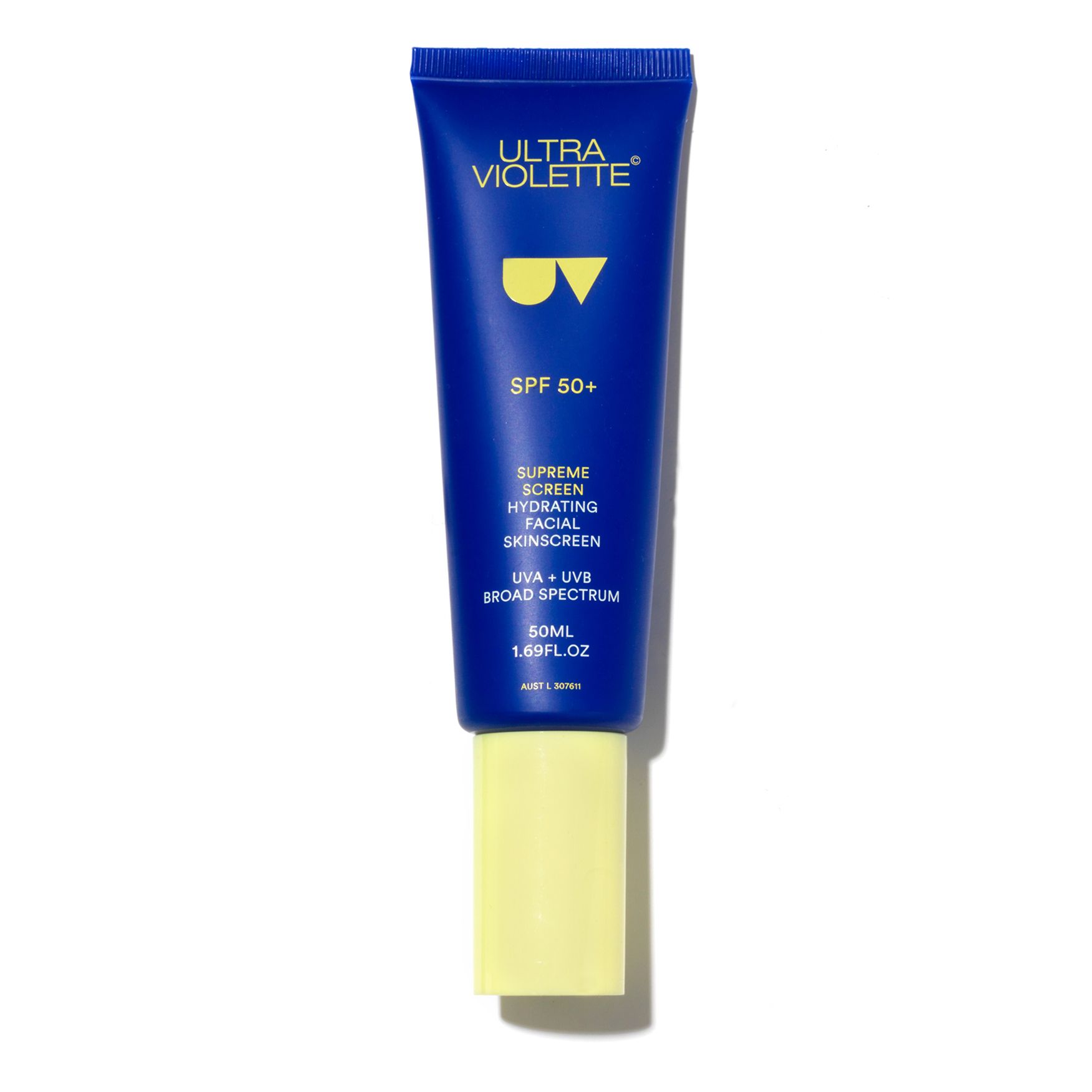
“Try integrating a gentle fruit acid–based exfoliating mask once a week to improve cell turnover and repair skin,” advises Sturnham. “Lactic acid is a good choice for sensitive skin prone to dehydration as it exfoliates but also is a humectant, so [it]helps to draw moisture into the skin.”
And Ejikeme agrees: “Focus one step of your routine on a treatment step. If your concern is hyperpigmentation this may be a pigment regulator, like cyspera or arbutin. If it is redness, it may be azelaic acid. If fine lines are a concern, use a gentle retinoid such as retinaldehyde 0.05%.”
